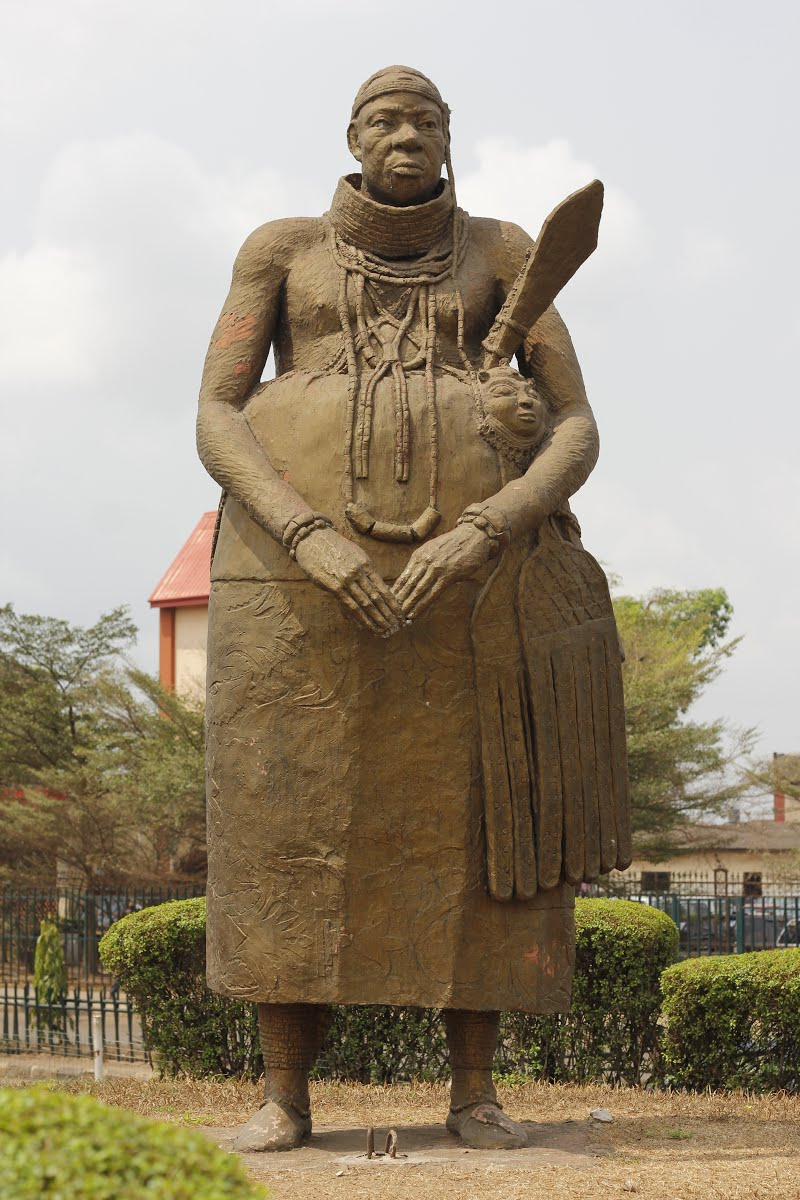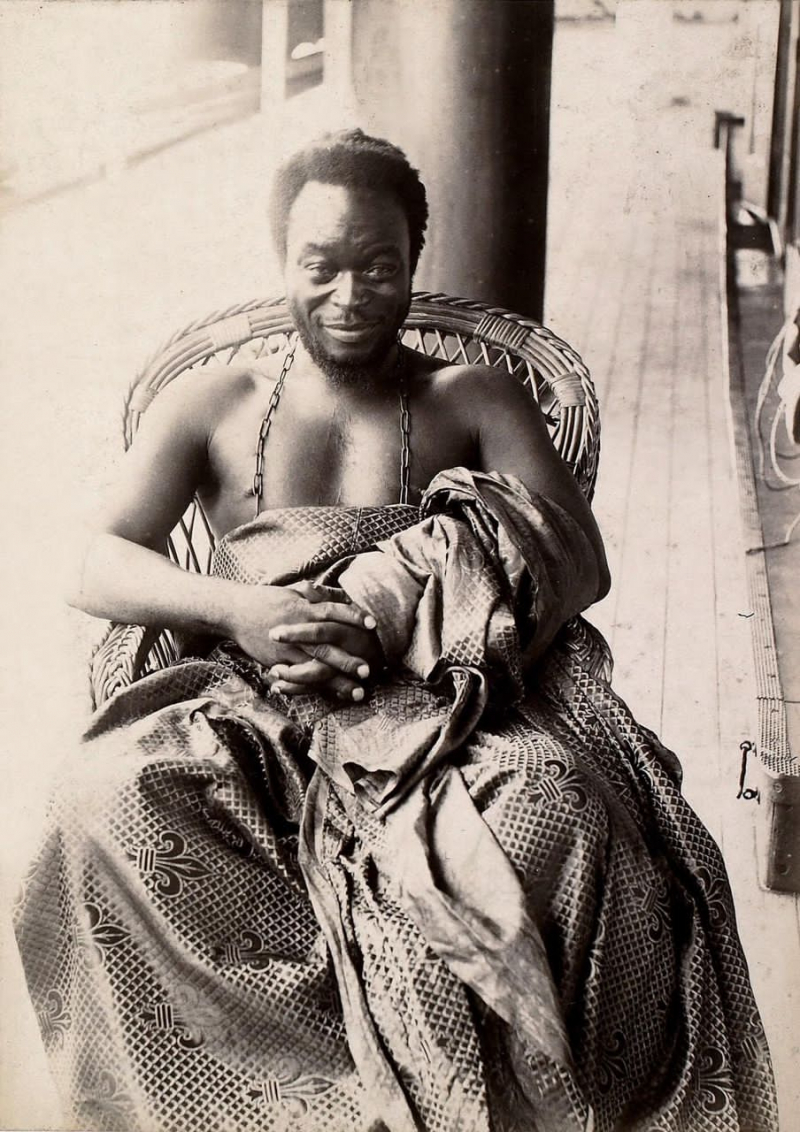Ovonramwen
Ovonramwen Nogbaisi, also known as Overami, was the Ọba (king) of the Kingdom of Benin (a kingdom within what is now southwestern Nigeria.) from 1888 until the British punitive expedition of 1897. He is regarded as one of the most important historical figures in Nigeria.
He was the son of Ọba Adọlọ and was born around 1857. When he was crowned in 1888, he took the name Ovonramwen Nogbaisi. At his coronation, every Ọba was given a new name, Ovonramwen, which means "The Rising Sun," and Nogbaisi, which means "which spreads over all."
By the end of the nineteenth century, the Kingdom of Benin had maintained its independence, and the Ọba held a trade monopoly that the British found vexing. An influential group of investors desired the territory because of its abundant natural resources such as palm oil, rubber, and ivory. The kingdom was largely independent of British control, and pressure from figures such as Vice-Consul James Robert Phillips and Captain Gallwey (the British vice-Consul of the Oil Rivers Protectorate) who advocated for British annexation of the Benin Empire and the removal of the Ọba continued.
He died in Calabar near the turn of the year 1914. Ovonramwen was eventually buried in the grounds of Benin City's royal palace. He was succeeded by Prince Aguobasimwin, his first son and legitimate heir, who ruled as Eweka II.







